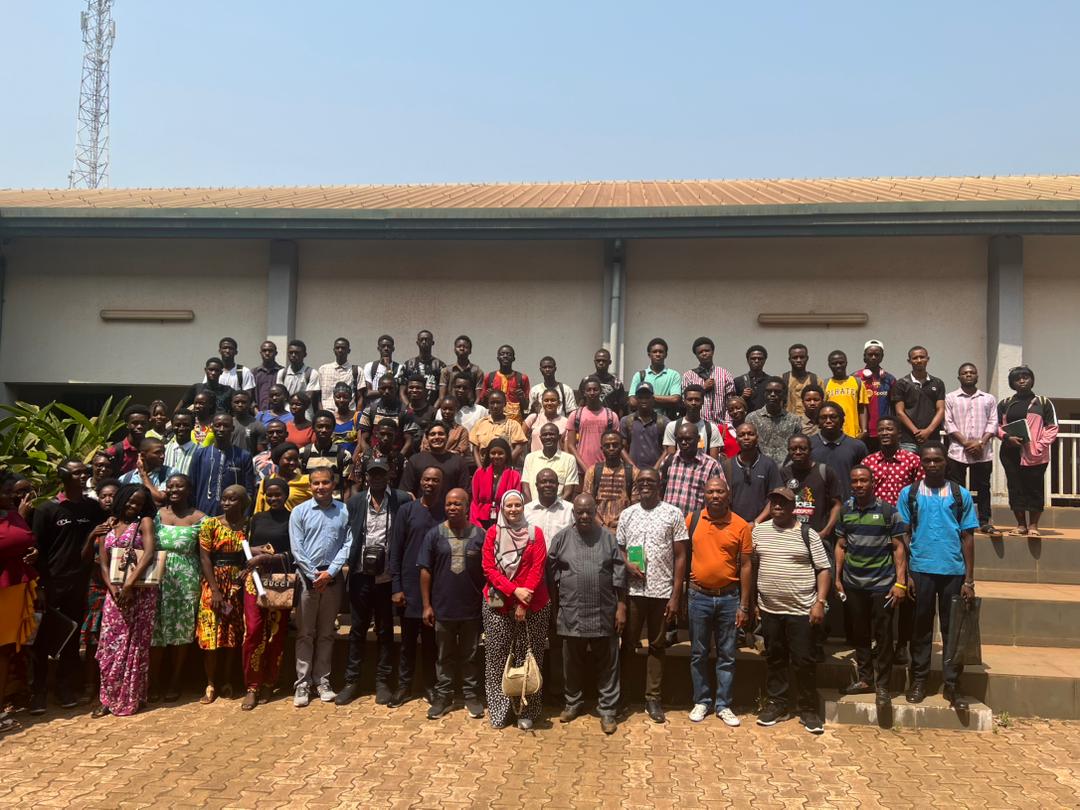ISO 9001:2015 & ISO 27001:2022 Certified Organization

Stakeholders Gather to Shape the Future of Freetown’s Urban Development
Workshop on Western Area Regional Structure Plan Charts a Path for Sustainable Growth
04 Feb 2025 00:00:00
Freetown, February 4, 2025 – Urban development experts of VisionRI, government officials, and key stakeholders convened today for a crucial workshop focused on shaping the future of Freetown and the Western Area. Organized under the Resilient Urban Sierra Leone Project (RUSLP), the FSP Discussion Workshop marked an important step in the development of the Western Area Regional Structure Plan (WARSP), a long-term blueprint for guiding the region’s urban expansion and infrastructure planning.
With Freetown’s population expected to grow significantly by 2044, the need for a well-structured urban plan has never been more urgent. The city faces mounting challenges, including uncontrolled urban expansion, traffic congestion, inadequate housing, and environmental risks such as floods and landslides. The WARSP initiative aims to provide strategic solutions to these pressing issues, ensuring sustainable growth and resilience in the face of climate-related disasters.
Led by a distinguished panel of urban planners, economists, environmental experts, and governance specialists, the workshop facilitated discussions on key topics, including land use, transportation, economic development, and disaster risk management. Participants also engaged in stakeholder consultations to explore ways of improving coordination between local and national authorities.
During the opening session, Prof. Dr. Heba Allah Essam E. Khalil, VisionRI's Team Leader for Urban Planning and Design, emphasized the importance of inclusive and data-driven urban planning. “The future of Freetown and the Western Area depends on well-coordinated efforts. Through stakeholder engagement and evidence-based strategies, we can build a city that is both resilient and sustainable,” she said.
The workshop agenda covered an in-depth analysis of Freetown’s current urban landscape, highlighting the urgent need for improved public transport systems, expanded housing developments, and better waste management solutions. Discussions also focused on the institutional capacity-building efforts required to support long-term planning, with a particular emphasis on strengthening the Ministry of Lands, Housing, and Country Planning (MLHCP), the Freetown City Council (FCC), and the Western Area Rural District Council (WARDC).
As the event concluded, participants reaffirmed their commitment to collaborating on the next phase of the WARSP and FSP. The initiative will now move into its implementation stage, which includes finalizing policy recommendations, refining the structure plan, and ensuring community engagement in the planning process.
The workshop underscored a growing consensus among stakeholders that Freetown must embrace modern, sustainable urban planning strategies to accommodate its rapid growth. As efforts continue, the WARSP initiative is expected to set a strong foundation for a more structured, resilient, and livable city, ensuring that future generations can thrive in a well-planned urban environment.































